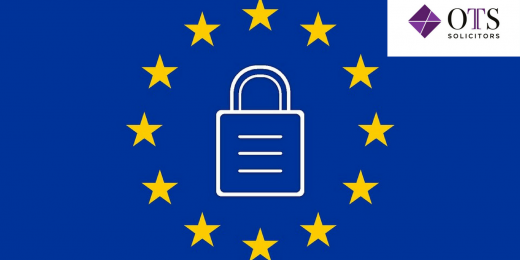Is The British Government Preparing To Discriminate Against Migrants Using The GDPR?

By Oshin Shahiean, of OTS Solicitors
An op-ed piece in the Guardian newspaper this morning by Claude Moraes, a Labour MEP representing London, and a Chair of the European parliament’s civil liberties, justice and home affairs committee has raised concerns that the Government may use the General Data Protection Act (GDPR) to create an even more ‘hostile environment’ for migrants.
London’s best Immigration lawyers and Human Rights activists will be alarmed to hear that a new clause in the government’s>Immigration procedure to know what public authorities hold about them and to rectify or delete erroneous or unlawfully collected personal data.
This means that all migrants, including EEA migrants after the UK formally leaves the EU in March 2019, may be prevented from accessing the data used to deny them leave to enter or remain. It follows that this inability to access the data will deny migrants the opportunity to appeal on the grounds that a mistake is present in the data held by government authorities. After all, it is impossible to correct data you have no right to access.
Mr Moraes states:
“This is an alarming development and anyone who understands Immigration law or>Immigration disputes to obtain their personal information from the Home Office, something which is essential to any administrative dispute. In addition, these measures would also potentially affect the 3 million EU citizens who will soon face new processes to register their residence after Brexit.”
What is the public’s right to access personal information under the GDPR?
Under the GDPR, data controllers must, on request:
- confirm they process a person’s personal data
- provide a copy of the data
- provide supporting explanatory materials (which must be reasonably detailed)
Under Article 15(3) the controller has a duty to provide the data subject with a copy of his or her data held by the controller. The first copy should be provided free of charge; any subsequent copies can have a reasonable administrative charge attached.
According to Mr Moreas:
“The discriminatory situation being created is being seen with great concern in the European parliament. The UK data protection authority and digital rights organisations are sounding the alarm because of how this measure would disproportionately interfere with the fundamental rights of non-nationals resident in the UK. This would mean that the UK would not uphold the adequate levels of protection required for the exchange of personal data between the UK and other EU states.”
What are the criticisms of the DP Bill GDPR exemption clause?
As expected, the best Immigration solicitors based in London and groups supporting migrant rights have attacked the government’s moves, calling them “shameless”.
Civil liberty groups have stated the DP Bill’s exemption clause, denying migrants the right to access personal data government organisations and private companies hold on them, creates a “two-tier, racially discriminatory data protection regime”.
The Information Commissioner’s Office (ICO), the body that will oversee GDPR compliance in the UK, provided a briefing to the House of Lords late last year. Regarding the exemption for Immigration processing, the report stated:
“The majority of>Immigration, mostly by solicitors acting on behalf of those seeking Asylum. This exemption could potentially render personal>Asylum decisions for example. If the exemption is applied, individuals will not be able to access their personal data to identify any factual inaccuracies and it will mean that the system lacks transparency and is fundamentally unfair.”
The ICO also noted that the current>Immigration. The body suggested that whilst an exemption should be made available under limited circumstances, for example, so as not to prejudice the investigation of an individual who has overstayed their permitted term in the UK, this could be restricted in the DP Bill to only limit access to personal data rather than all the other ‘GDPR provisions’ which would be exempted.
The Open Rights Group has stated that the exemption in the DP Bill:
“would prevent people from being able to challenge Home Office errors, which are common in Immigration cases - the Chief Inspector of Borders and Immigration reports mistakes in 1 in 10 cases.”
Open Rights also points out the exemption would not just apply to information held by the Home Office. As the current Immigration system in part puts the responsibility of Immigration control on to landlords, banks, schools, hospitals, and employers, the exemption would create a two-tiered system concerning the processing and rights of owners to access>Immigration status.
The statement from the group also points out that EEA nationals living in the UK after Brexit will have less access to their data than British Citizens.
Martha Spurrier, Director of Liberty, when asked about the exemption, told a reporter:
“Even from a Government with a track record of fostering division and sanctioning discrimination, this is a particularly brazen expression of how low they will go to bring border control into our everyday lives, no matter the cost.
It is a shameless attempt to subordinate migrants’ fundamental privacy and>Immigration control. The Government can’t be allowed to sneak this nakedly racist provision onto our law books – we urge the Lords to take it out of the Bill.”
It is interesting to note that a similar clause with an identical aim was inserted into the>Immigration rules were otherwise accepted, the clause was roundly condemned and removed for being overly oppressive.
This clause, which was not removed by the House of Lords in December, despite fierce arguments from civil liberty and migrant groups, illustrates how far the Conservative Government under Theresa May is prepared to go to create a “hostile environment” for migrants.
OTS Solicitors is one of the most respected Immigration law firms in London and is a Legal 500 leading firm. By making an appointment with one of our Immigration solicitors, you can be assured of receiving some of the best legal advice available in the UK today. Contact us on 0203 959 9123 to speak to one of our Immigration consultants.


